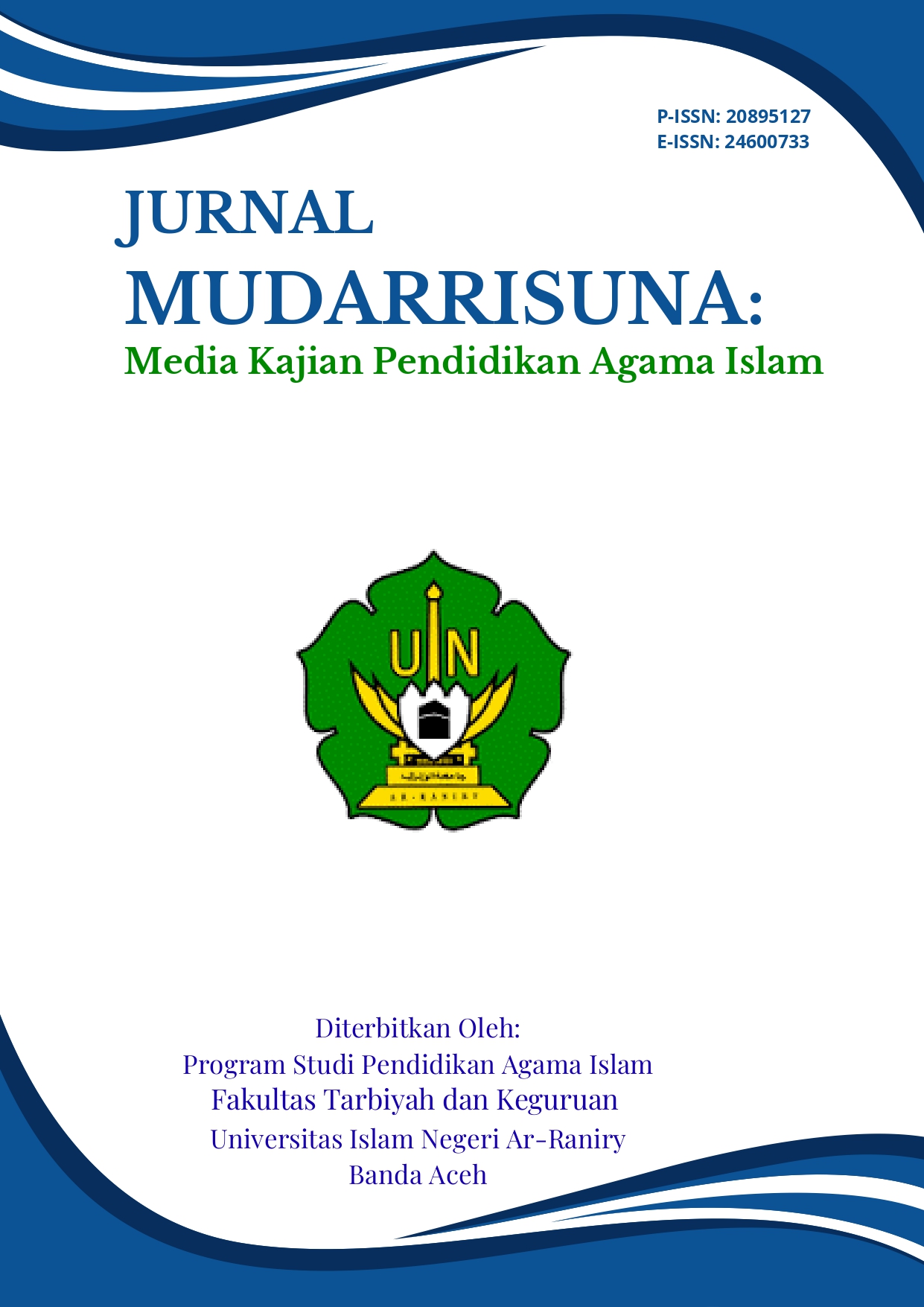ANTROPOLOGI PENDIDIKAN ISLAM DALAM ERA DIGITAL: MENGKAJI PERUBAHAN PARADIGMA DAN PRAKTIK PEMBELAJARAN KONTEMPORER
DOI:
https://doi.org/10.22373/13escc30Abstract
The digital era has shifted traditional values in Islamic education, creating tension between preserving Islamic teachings and adapting to technology, while also reducing social and spiritual interaction in online learning. Meanwhile, anthropological studies on the Muslim community’s responses to this phenomenon remain limited. This study aims to describe and analyze the anthropology of Islamic education in the digital era by examining paradigm shifts and contemporary learning practices. This research employs a library research method, relying on written sources such as books, scholarly journal articles, and research reports as the primary data sources. The findings reveal that: First, the Paradigm Shift in Islamic Education in the Digital Era has moved from face-to-face, teacher-centered learning to flexible, student-centered learning. The main challenge lies in maintaining Islamic values while integrating technology. Second, Contemporary Learning Practices in Islamic Education take the form of e-learning, blended learning, and flipped classrooms, which are becoming increasingly popular. However, online learning often reduces social and spiritual interactions, requiring educators to balance technology with Islamic values. Third, the Response of Muslim Communities to Digital Transformation in Islamic Education varies; urban communities tend to be more open to technology, while rural communities are more inclined to maintain traditional values. Based on these findings, Islamic educational institutions need to adapt by developing Islamic-based learning platforms and providing technology training for educators. Integrating technology with Islamic values through models such as e-learning is essential. Educators must be trained to enhance their technological competence, while the government and educational institutions should ensure equitable access to adequate digital infrastructure.
Downloads
Published
Issue
Section
License
Copyright (c) 2025 Abdul Hadi Hadi

This work is licensed under a Creative Commons Attribution-ShareAlike 4.0 International License.
Jurnal MUDARRISUNA: Media Kajian Pendidikan Agama Islam allows the author(s) to hold the copyright and to retain the publishing rights without restrictions. Authors who publish in this journal agree to the following terms:
- Authors retain copyright and grant the journal right of first publication with the work simultaneously licensed under a Creative Commons Attribution-ShareAlike 4.0 International License that allows others to share the work with an acknowledgment of the work's authorship and initial publication in this journal.
- Authors are able to enter into separate, additional contractual arrangements for the non-exclusive distribution of the journal's published version of the work (e.g., post it to an institutional repository or publish it in a book), with an acknowledgment of its initial publication in this journal.
- Authors are permitted and encouraged to post their work online (e.g., in institutional repositories or on their website) prior to and during the submission process, as it can lead to productive exchanges, as well as earlier and greater citation of published work.




